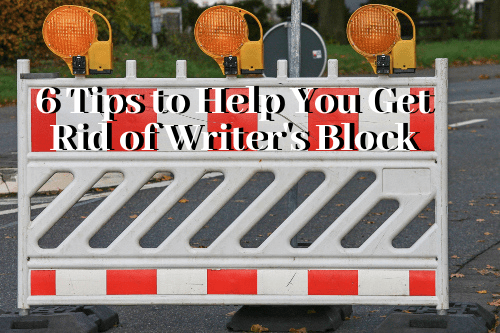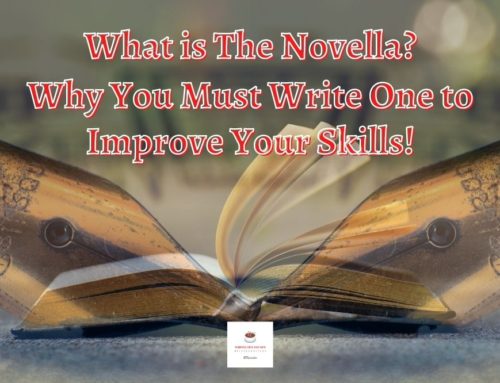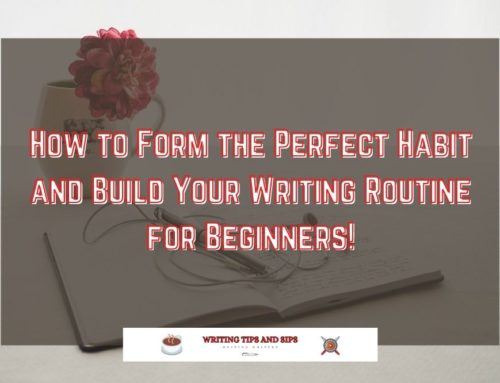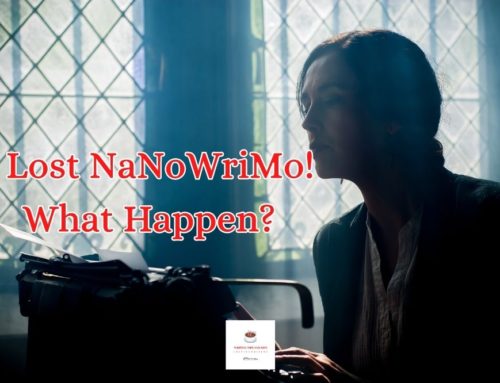I, as well as many other writers, struggle with writer’s block. It is always rearing its ugly head, telling me, “you don’t want to write, do something else instead.” Often, hours go by before I see a breakthrough and get work done.
What is writer’s block?
It is simply a lack of motivation to sit down and write.
I can stare at the blank page for hours at a time – having no idea what to type, or sometimes I’ll get a sentence down, with little idea where to go next.
My mind goes blank.
My phone tempting me to check twitter, google analytics, or Pinterest. Anxiety yelling, I have due dates to meet.
Writer’s block is the most stressful, and perhaps, the most human aspect of writing. It is something we all go through at one point or another.
It is my goal that you will be able to combat writer’s block by the time you’re done with this article. Similar to building a writing routine, here are the six ways I fight writer’s block.
1. Caffeine

I wake up, shower, put on my contact, eat, and it is time to write. Without caffeine, writer’s block hits me hard. I’ll stare at the screen of my laptop imagining playing a couple of hours of Assassin’s Creed or wishing I am watching Avatar: The Last Airbender with my Fianceѐ.
My mind wanders aimlessly.
When I sit in front of my computer, I have either a hot cup of coffee or a cold energy drink. The caffeine helps me focus my thoughts and attention on the project in front of me. My most productive times are while I am sipping on my beverage.
According to research from The Newyorker, “[caffeine] boosts energy and decreases fatigue; enhances physical, cognitive, and motor performance; and aids short-term memory, problem-solving, decision making, and concentration.” These enhancements help with the writer’s mind allowing one to be more productive at a given time than without.
Disclaimer: Caffeine, like most drugs, can harm your body and health if done in excess. I do not condone the use of more than one caffeinated drink a day, and I provide tips that don’t require any outside substance.
3. Binaural Beats
When I first turn on my laptop to write, I usually open up two programs: brainural.com and Spotify. Binaural beats play two separate frequencies in either ear to trick or induce your brain into a specific state. I use the productivity and creativity states when I write to help keep the writer’s block at bay.
The tone is a consistent sound that hides behind the music I listen to, allowing the sound to be nonintrusive and in the background. The tone takes 5 to 7 minutes before it has any effect on your brainwaves.
Once I feel my mind become focused, I find it much easier to get into a zone. I don’t think of outside distractions and allow the words to flow onto the page. I find the creativity to be most helpful when I am working on my work-in-progress or short stories. I can better visualize the worlds and images in my head and transpose those ideas on the page.
3. Meditation

I talk a little about meditation in my writing routine article here. Still, I bring it up again because it is an enormous help in combating writer’s block. I will put on binaural beats and close my eyes, breathing in a deep full breath, and exhaling fully. I will repeat breathing fully until I feel my mind relax. Once relaxed, I breathe through my nose and allow my breath to continue in its natural rhythm.
Thoughts are okay, and apart of the process. Acknowledge them and let them pass – if you get an idea for your W.I.P., write it in your writer’s notebook and move on. Whatever happens in your meditation is good.
Once I feel ready, I open my eyes and begin to write with a clear mind. Writer’s block washes away, and I’m free to write whatever flows to my mind.
I get double the amount of words after meditating than when I write and don’t meditate.4. Jump Around
I don’t mean physically jump around unless you really want to – it won’t hurt. But, I do recommend jumping around the text.
When I am writing in my W.I.P., I often get stuck on a chapter and have no idea where to go. I’ll be stuck for weeks or months at a time. The best way to jog creative juices is to jump to a different scene or chapter.
Come back to the troubled spot later.
This is where a worldbuilding bible is useful. You can keep track of the changes in your bible as a record of the happenings in your story. I go into more detail here.
Jumping around doesn’t necessarily need to be within the project; you can also jump to entirely different works and come back to the main work-in-progress. This gives your brain a chance to think about something else, allowing writer’s block to disappear.
5. Take a Break
Taking a break is not the best first option or an option if you haven’t started writing yet. This is more for writer’s block that comes in the middle of a session.
I’ll be on a roll, writing four to eight-hundred words, then boom!
Writer’s block.
My brain comes to a halt, and I have no idea what else to write.
My goal is sixteen hundred words, so I can’t end my session for the day. Lame!
Enter taking a break.
I know I’ll be wasting time trying to force words onto the page, so I’ll either play a game, go for a walk, or eat. The break allows my mind to shift gears for a moment, while my subconscious processes the ideas of where the text leads.
When I get back to the project, I can finish my words for the day.
6. Disconnect
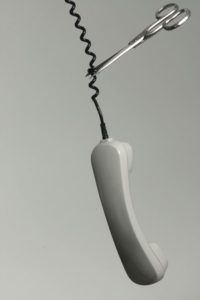
Turn off your internet, put away your phone, get rid of any distraction.
Literally, disconnect from the world around you during your writing session.Distraction is the most significant factor in writer’s block.
If I am too focused on the outside world, I cannot get any writing done. I want to scroll through Facebook, Twitter, text my fiancée, watch YouTube, basically do anything else.
Turning off my electronics, and disconnecting from the internet takes the temptation away. My full attention goes to my writing, and I have a productive session. Once I need a break, I can look at technology before disconnecting again.
The lack of distraction allows my mind to focus on the task at hand. I trick my brain into thinking about my writing by limiting options. Writing is all I think about.
Conclusion
Writer’s block affects us all, and there are many ways to fight it. I hope my experiences help get rid of writer’s block and provide productive writing sessions. I know the lack of motivation can be tough, and sometimes it is okay to give yourself a break.
C. D. Baron
Latest posts by C. D. Baron (see all)
- What is The Novella? Why You Must Write One to Improve Your Skills! - 03/21/2021
- Wake Up! A Short Story (Work in Progress) - 02/07/2021
- My Top 5 Favorite Reads of All Time (So Far) - 01/24/2021
